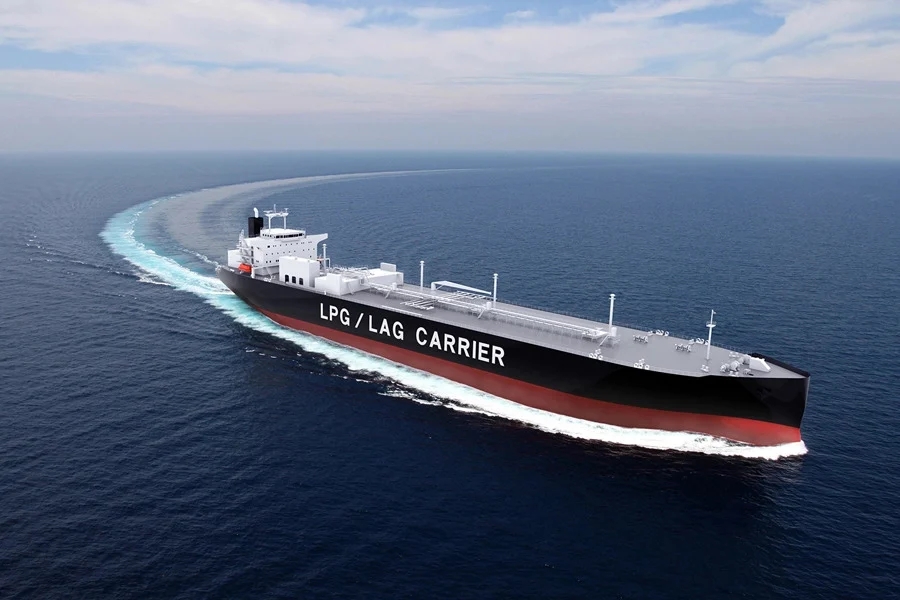Mitsubishi Shipbuilding designs LPG-powered VLGC convertible to ammonia fuel
2022-06-10 09:35 Release person:Schindler Logistics
June 9, 2022, by
Japanese shipbuilder Mitsubishi Shipbuilding, a part of Mitsubishi Heavy Industries (MHI) Group, has completed the conceptual design of a very large gas carrier (VLGC) initially powered by liquefied petroleum gas (LPG) but adaptable to future use of ammonia as the main fuel.
The shipbuilder has also received approval in principle (AIP) from compatriot classification society ClassNK for the design.

According to Mitsubishi Shipbuilding, the creation of a design enabling conversion to ammonia fuel in line with future needs is expected to permit relatively small-scale ship retrofitting when the use of ammonia fuel becomes a viable option.
is expected to come into wide use in the future as a stable and clean source of energy. Because it emits no CO2 when combusted, ammonia is garnering attention as a fuel that will contribute significantly to reducing greenhouse gas (GHG) emissions in the marine industry.
Mitsubishi Shipbuilding’s newest VLGCs, in addition to using LPG fuel as an alternative to the conventionally prevalent heavy oil, can also transport ammonia as cargo.
As such, the company’s VLGCs are said to be highly suited to using ammonia fuel in the future.
In recent years, Mitsubishi Shipbuilding has been conducting investigations into the potential use of ammonia fuel in VLGCs as one means of achieving carbon neutrality in the global marine industry by 2050, a target pursued jointly by the public and private sectors in a quest to reduce the industry’s GHG emissions.
In November 2021, the company joined forces with compatriot Namura Shipbuilding and Mitsui O.S.K. Lines (MOL) to develop 。
Moreover, Mitsubishi to flexibly meet future transport demand, unveiling the concept earlier this year.
As part of its response to the increasing demand, the shipbuilder recently revealed its plans to further advance the technology and commercialise the ammonia/LCO2 carrier in cooperation with marine-related corporations and petroleum development corporations.
As an integral part of MHI Group’s, Mitsubishi Shipbuilding has established the vision for 2050 in the ship and marine sector, setting the goals of “a decarbonised marine world” through autonomous operation and electrification, and “effective utilisation of the marine space” through renewable energy and the carbon cycle, and working to generate and implement ideas for marine-related innovation.




